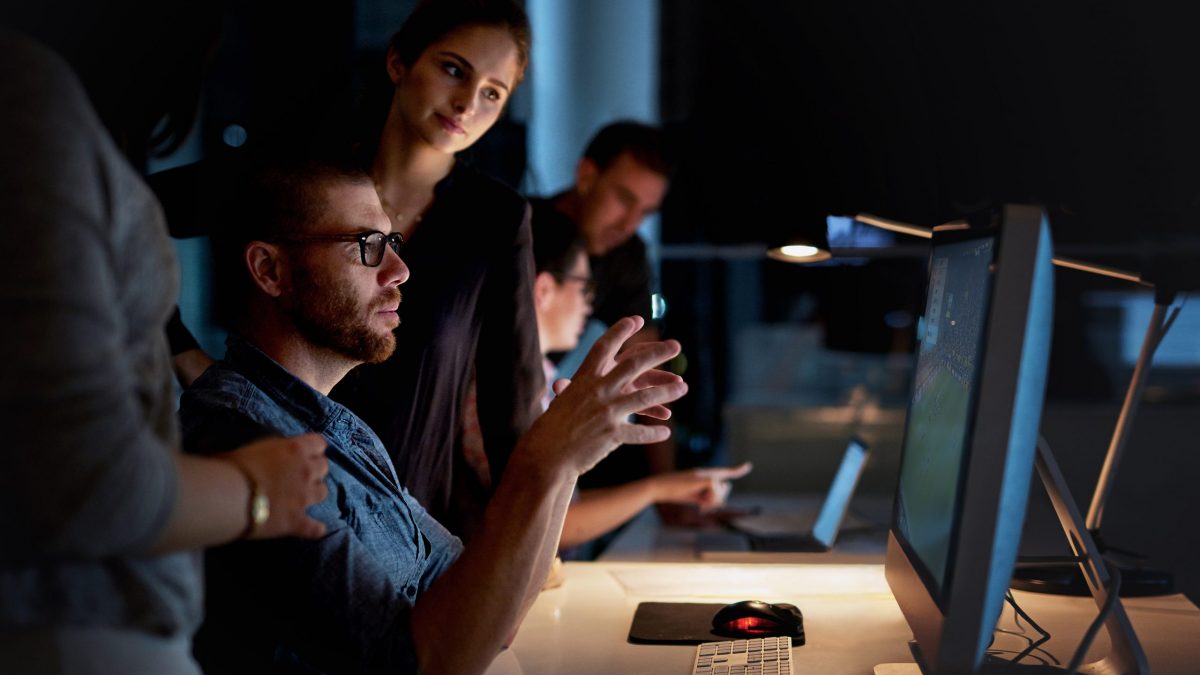Comprehensive protection of intellectual property rights

31 January 2023 – Fans around the world enjoy keeping track of top sport events, eager to watch key games and outcomes live on screen. However, apart from the official, legitimate providers of broadcasts and online content there are illegal parties or “pirates” who hack into the signal to gain access illegally. They have created a multi-layered ecosystem to make money selling stolen digital content, causing tremendous economic damage to the rightful owners and users of the content. They do so in a highly organised approach. Their fake offers often appear credible to end users and are hard to distinguish from a legitimate media product. To make matters worse, in 57 per cent of cases, illegal offerings come with concealed malware (for more information see the AAPA Study from September 2022).
Up to 10,000 copyright violations per matchday
The owners of the infringed intellectual property rights suffer damage, as well. Digital piracy is a concrete economic threat to DFL Deutsche Fußball Liga: “Up to 10,000 illegal uploads or live-streams are detected on any Bundesliga matchday,” says Dr Steffen Merkel, Member of the DFL Executive Board and Director of Audio-visual Rights. To counteract this abuse of their media rights, owners take far-reaching measures, he explains: “The DFL not only makes full use of the available legal means to protect its transmission rights. We also work closely with European and international institutions.” What is more, the DFL holds a stake in ryghts, a successful start-up company specialising in fighting digital piracy, and plays an active part in the leadership teams of two major international industry organisations, the Sports Rights Owners Coalition (SROC) and the Audiovisual Anti-Piracy Alliance (AAPA).
“Every professional sport organisation faces the same challenge. But because of its great popularity, football is especially affected by piracy,” says Oliver Pribramsky, Head of Rights Management, Technologies & Archive at DFL. Responding rapidly and effectively makes the difference when fighting piracy, he adds: “To us as a league organisation, live broadcasts represent the most valuable content,” accounting for roughly 70 to 80 per cent of media revenues. “This means we must detect every illegal activity immediately and take countermeasures right away to make sure the stolen content is removed promptly.”
ryghts takes an innovative approach
In 2019 the DFL and Athletia, a leading provider of piracy monitoring services on social media, jointly decided to establish an antipiracy joint venture. Now “ryghts” combats piracy on a broad front, covering social media, the Web and IPTV. ryghts uses smart technology and automation to detect, report and eliminate media rights abuses, supported by customised search term lists, direct platform links, dynamic database extensions, and systematic integration of a variety of data sources across all levels. This is especially useful for a speedy discovery and termination of illegal content streams. ryghts not only acts on behalf of German professional football but also serves other international leagues and associations of various sports disciplines, along with media customers.
Collaboration in various networks
The Sports Rights Owners Coalition (SROC) is an industry-facing organisation of European and global owners of sports rights with numerous well-known sport organisations and leagues among its members. Apart from major football associations and leagues, sport disciplines like cricket, golf, rugby and tennis are also represented in SROC. The organisation focuses on fighting illegal activities that violate sports rights, for example through anti-piracy efforts, and represents the interests of its members at legislative bodies. “The DFL contributes a lot of expertise to the work of SROC; sharing our know-how allows us to utilise synergies that benefit the entire sports industry,” says Pribramsky who is a member of the SROC board, together with a representative of each, the English Premier League and the Spanish LaLiga. Activities of SROC representatives include attending sessions of various European Union agencies to highlight the issues from their perspectives. For instance, one of the achievements of the European SROC members is the formation of the Live Content Coalition which focuses on promoting key regulations that are needed to enable active measures against the negative effects of digital piracy.
The Audiovisual Anti-Piracy Alliance (AAPA) is an industrial organisation dedicated to fighting digital piracy. Its 29 members include rights owners and licence holders, broadcasters and media companies as well as hardware manufacturers and providers of anti-piracy services. It is mainly active within the EU. Its president is assisted by two co-presidents. Here again the DFL is actively involved, with Oliver Pribramsky serving as one of the co-presidents. “One of the strengths of AAPA is that, on the one hand, it takes a consulting role in EU committees while on the other hand collaborating very closely with the European Intellectual Property Office (EU-IPO), which publishes key studies on piracy to support the work of EU committees,” explains Pribramsky.
Persistence leads to success
While court action against digital piracy can take a long time, every successful conviction makes a difference, confirming the necessity of acting decisively and being persistent. This not only means discovering and removing illegal content offerings but also identifying the perpetrators. In one recent case, close cooperation with several partners led to the uncovering of a criminal organisation operating across Europe, with more than 40,000 TV channels, films, documentaries and other digital content hosted on an international server network and offered illegally through various websites. Law enforcement agencies from 14 countries contributed to the investigations which were supported by Europol and Eurojust. To a large extent, this success was a result of close professional exchange between the experts: For example, AAPA provides training and strategic material to police forces so they can take informed action against illegal activities related to sports rights. A similar kind of knowledge transfer benefits the new global Interpol working programme “INTERPOL Stop Online Piracy”, which specifically addresses intellectual property matters and the fight against digital piracy.

